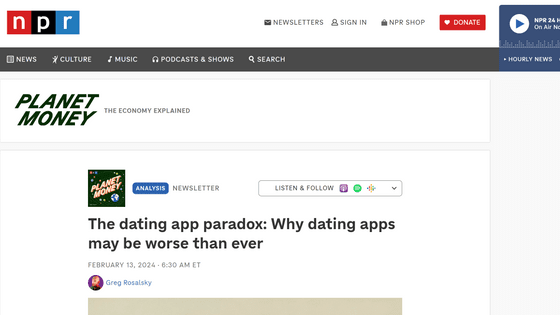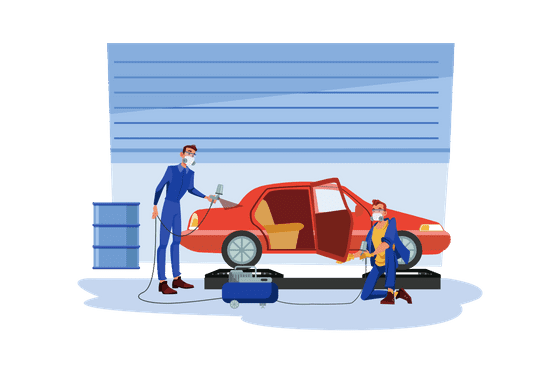The reason why matching on dating apps doesn't go well can be explained using the theory of the used car market.

According to
The dating app paradox: Why dating apps may be worse than ever : Planet Money : NPR
https://www.npr.org/sections/money/2024/02/13/1228749143/the-dating-app-paradox-why-dating-apps-may-be-worse-than-ever

Rosalski highlights two major flaws in dating apps. The first is the business model of dating apps, which is based on the fact that many apps are basically free but charge a fee for features that increase the profile's profile and send unlimited messages. 'For every successful match and withdrawal, the app loses two users,' he said, pointing out that the app has no incentive to successfully match users.

Companies operating dating apps are of course for profit purposes, so they have intentions that are opposite to those of the users they want to match with. Rosalsky describes this structure as the “matching app paradox.”
As for the second flaw, Rosalsky pointed out that ``matching on dating apps'' has the same structure as
For example, the price of a new car drops significantly the moment it becomes a used car, but this is because even if the car looks and feels the same as a new car, buyers may think that because it is used, there may be some major defect. This is to request a discount to compensate for the risk involved. On the other hand, sellers know that their cars are as high-quality as new cars, so they leave the market because they say, ``I can't sell it at that price.'' As a result, the market is flooded with used cars of poor quality, and buyers further estimate the risk and demand even greater discounts...and the loop repeats, resulting in only inferior products lining the market. . In American slang, a used car of poor quality is called a 'lemon car,' so Mr. Akeroff named a market where only inferior products are sold due to this information asymmetry the 'lemon market.'

Similarly, dating apps initially have good users, ``romantic people looking for true love,'' but at the same time, there are also ``sneaky users who lie or omit important information on their profiles.'' In such a situation, it is natural for users to discount their profile when searching for a partner, thinking that their profile may be well-regarded, but on the other hand, good users who write honest profiles tend to underestimate themselves. Because they get tired of being treated as such and quit the app, in the end only sleazy users remain and ``good matching'' is no longer possible.

Rosalski noted that the used car market uses third-party reviews to alleviate this problem, and said dating apps should explore similar solutions.
Related Posts:
in Web Service, Posted by log1d_ts







